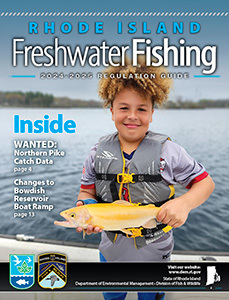#responsiblerecreation
Outdoor recreation including hunting, fishing, and hiking is a great way to relieve stress and spend time with loved ones!
It is up to all Rhode Islanders to be responsible while participating in these activities, now more than ever. There are a few things to keep in mind to make sure you are being safe while fishing in the Ocean State this year.
If you need to purchase freshwater or saltwater fishing licenses for you and your family, visit RIO.RI.GOV to purchase at home. Be sure that all anglers 15 and older have a fishing license. If you plan to fish for or possess trout, fish in a ‘catch and release’ area, or fish in a ‘flyfishing only’ area, be sure to add the Trout Conservation Stamp to your license. If others are fishing at the same spot, maintain a distance of at least 6 feet, or about the length of a fishing rod. If the area is too crowded to keep your distance, try fishing somewhere else or coming back another day.
RI has a “Carry in-Carry out’ policy. Please take your litter with you. Recycling containers for used monofilament and fluorocarbon line can be found at some bait and tackle shops and at some boat ramps, piers and other fishing access points. Please use these only for used line, not hooks, lures, cans, bait containers, or other trash.
As always, make sure to follow all of Rhode Island’s fishing rules and guidelines to ensure that everyone can have a fun, safe time fishing this season and in the future!

